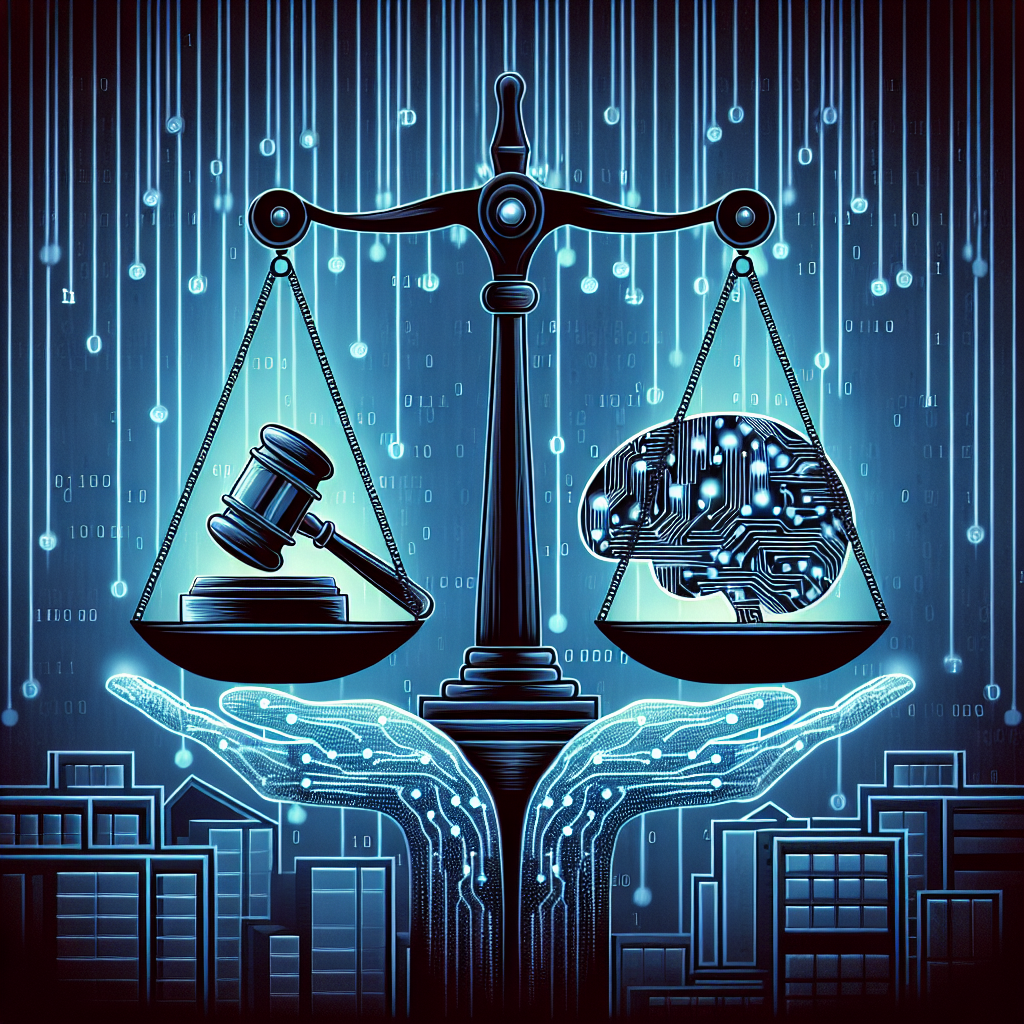Artificial intelligence (AI) has become an increasingly prevalent tool in the criminal justice system and law enforcement. From predictive policing to facial recognition technology, AI has the potential to revolutionize the way that crimes are solved and punished. However, the use of AI in these contexts also raises a number of ethical considerations that must be carefully considered.
One of the primary ethical concerns surrounding the use of AI in criminal justice and law enforcement is the potential for bias and discrimination. AI algorithms are only as good as the data they are trained on, and if that data is biased or incomplete, the AI system may perpetuate or even exacerbate existing biases in the criminal justice system. For example, if an AI algorithm is trained on historical crime data that disproportionately targets certain racial or socioeconomic groups, the algorithm may end up unfairly targeting those same groups in the future.
Another ethical concern is the lack of transparency and accountability in AI systems used in criminal justice and law enforcement. Many AI algorithms are considered “black boxes,” meaning that their decision-making processes are not easily understandable or explainable. This lack of transparency can make it difficult for individuals to challenge or appeal decisions made by AI systems, leading to potential miscarriages of justice.
Additionally, there are concerns about the potential for AI to infringe on individuals’ privacy rights. For example, facial recognition technology used by law enforcement agencies can be used to track individuals’ movements and activities without their knowledge or consent. This raises questions about the balance between public safety and individual privacy rights, and how best to regulate the use of AI in law enforcement to protect both.
Despite these ethical concerns, there are also potential benefits to using AI in criminal justice and law enforcement. AI systems have the potential to analyze vast amounts of data quickly and accurately, helping law enforcement agencies to identify patterns and trends that may have otherwise gone unnoticed. This can lead to more efficient investigations and potentially help to prevent crime before it occurs.
Furthermore, AI systems can help to reduce human error in the criminal justice system. For example, AI algorithms can analyze large amounts of evidence in a fraction of the time it would take a human investigator, potentially leading to more accurate and reliable outcomes in criminal cases.
Overall, the ethical considerations surrounding the use of AI in criminal justice and law enforcement are complex and multifaceted. It is important for policymakers, law enforcement agencies, and AI developers to carefully consider these ethical concerns and work to mitigate the risks while maximizing the potential benefits of AI in these contexts.
FAQs:
Q: Can AI be biased in criminal justice and law enforcement?
A: Yes, AI algorithms can be biased if they are trained on biased or incomplete data. This can lead to unfair targeting of certain groups and perpetuate existing biases in the criminal justice system.
Q: How can we ensure transparency and accountability in AI systems used in criminal justice?
A: One way to ensure transparency and accountability in AI systems is to require that they are explainable and auditable. This means that the decision-making processes of AI algorithms should be easily understandable and open to scrutiny.
Q: What are the benefits of using AI in criminal justice and law enforcement?
A: AI systems have the potential to analyze vast amounts of data quickly and accurately, leading to more efficient investigations and potentially helping to prevent crime before it occurs. Additionally, AI can help to reduce human error in the criminal justice system.
Q: How can we protect individuals’ privacy rights when using AI in law enforcement?
A: It is important to establish clear regulations and guidelines for the use of AI in law enforcement to protect individuals’ privacy rights. This may include limiting the use of certain types of AI technologies, such as facial recognition, and ensuring that data is used and stored securely.
In conclusion, the ethics of AI in criminal justice and law enforcement are complex and multifaceted. While there are potential benefits to using AI in these contexts, there are also significant ethical concerns that must be carefully considered and addressed. It is essential for policymakers, law enforcement agencies, and AI developers to work together to ensure that AI is used responsibly and ethically in the criminal justice system.

